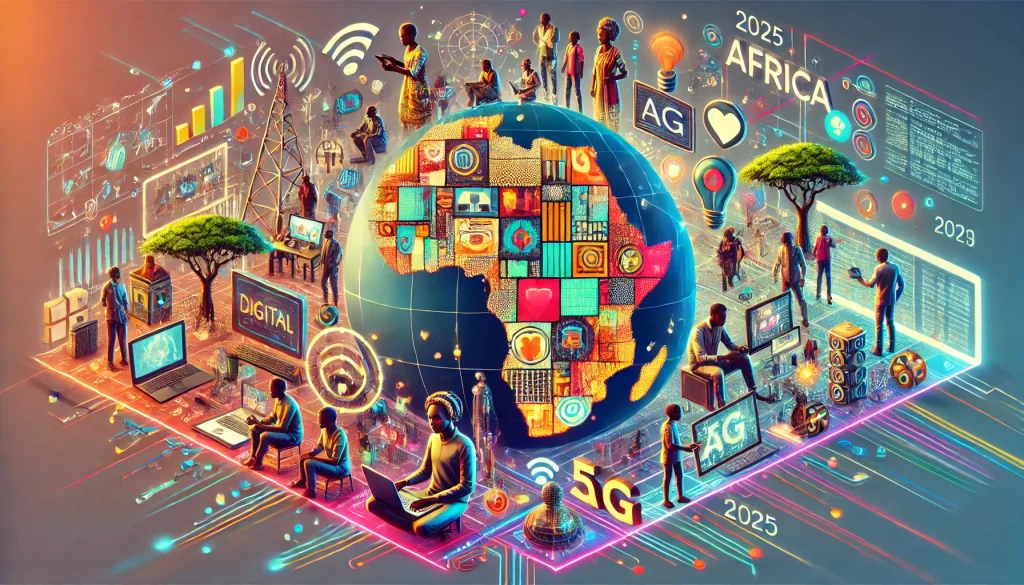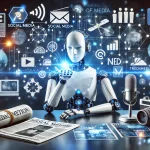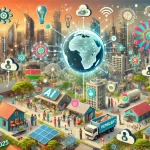This article explores how digital culture is shaped by creators, gaming communities, AI integration, and sustainability efforts.
Introduction
Digital culture in 2025 is a vibrant, interconnected tapestry shaped by the rise of creators, the social power of gaming, and the pervasive influence of artificial intelligence (AI). This article explores these three pivotal trends, illustrating how they are redefining our digital landscapes and influencing societal norms, with a focus on Africa’s dynamic role.
Rise of Creators
In 2025, the creator economy in Africa is experiencing unprecedented growth, projected to reach $17.84 billion by 2030, a six-fold increase, with a 28.5% annual growth rate (Africa’s creator economy is heading towards six-fold growth by 2030). This surge is fueled by 385 million active social media users on platforms like TikTok, Instagram, and YouTube, empowering individuals to build personal brands and engage global audiences. African creators like Khaby Lame and Mark Angel are leading global trends, with video content dominating, accounting for over 41% of the economy in 2022 (Africa Creator Economy Market Trends, Size, Share Forecast). This democratization reflects a vibrant digital culture, offering economic opportunities and cultural exchange.
Gaming as Social Platform
Gaming in Africa is not just entertainment; it’s a social phenomenon. With nearly 200 million gamers in 2023, the market is projected to reach USD 2.39 billion by 2025, growing at 11.62% annually to USD 4.14 billion by 2030 (Africa Gaming Market Report | Industry Growth, Size & Forecast Analysis). Mobile gaming dominates, with 92% playing on phones, primarily via Google Play Store (Gaming in Africa 2024: A GeoPoll Report). Platforms like Roblox and Fortnite foster communities, with 89% of gamers connecting over shared interests (2025, The Year Digital Culture Reshapes Society). In Kenya, gaming bridges cultural divides, enhancing social bonds across the continent.
AI in Digital Culture
AI is transforming digital culture in Africa, offering opportunities and challenges. The African Union’s AI Strategy aims to position Africa as a global leader, with Google committing $5.8 million to AI skilling (Africa’s AI Moment: Building a future powered by technology and talent). AI could add $1.2 trillion to GDP by 2030, a 5.6% increase (Artificial intelligence and Africa). Tools like DALL-E democratize art, while personalization raises ethical concerns about privacy and echo chambers. In Africa, AI addresses local challenges like healthcare, enhancing digital culture’s inclusivity.
Digital Sustainability
Digital culture’s growth demands sustainability. The World Bank’s Digital Economy Initiative aims for digital enablement by 2030, supported by initiatives like Google’s AI skilling (Digital Economy for Africa Initiative). The 2025 Africa Union Summit will adopt a 10-year strategy on social and solidarity economy for sustainable growth (Social and solidarity economy: key to Africa’s sustainable growth). In South Africa, 5G coverage is expected for 20-30% by 2025, enhancing connectivity (South Africa – Digital Economy). Digital skills development ensures a sustainable digital future, reflecting Africa’s commitment to green practices.
Digital culture in 2025 is interconnected, creative, and sustainable, driven by creators, gaming, AI, and environmental consciousness. For Kenya and Africa, these trends offer economic and social opportunities, requiring ethical and sustainable approaches to shape a future where technology and humanity thrive together.


